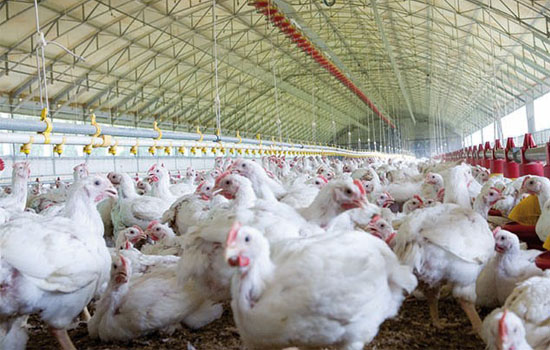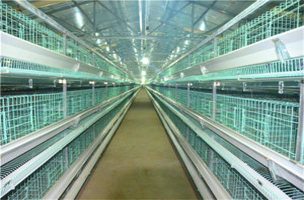Daily management of broiler cage breeding equipment
- Published in Poultry raising equipment
The daily management of broiler battery cages breeding equipment is also a problem that farmers should pay attention to. It is necessary to regularly observe the environment of the chicken cage and the chicken group. Everything should be precautionary, in order to all aspects can bring better economic benefits to farmers, the following broiler cage breeding equipment manufacturers to talk about the daily management of equipment.
Maintain good environmental conditions
1. Keep the chicken house dry, the drinking water system should be checked frequently, and the water dispenser should not leak or overflow.
2. Keep the house clean and hygienic. At least once a day, the feces should be removed every day, and during the cold season, the feces should be removed at the noon to allow for the timely discharge of ammonia.
3. The staff should be light in the house, and the broiler cage should not have a special sound, try to avoid causing the commotion of the flock.
4. The bulb should be wiped once a week, and the bad bulb should be replaced in time to ensure the proper illumination.

Observe the flock
The main purpose of the farmer to observe the flock is to let the farmer know the health and appetite of the flock at any time, pick out the sick chicken, pick out the dead chicken, and check whether the feeding management conditions meet the requirements.
1. Observe the feed intake of the chicken at any time, calculate the consumption amount every day, and find that the feed intake of the chicken should be found in time to solve the problem.
2. Pick out the discontinued chicken and stop the chicken. The general crown is small and shrinking, rough and pale, and the eyes and sputum are yellow. The main wing feather has fallen off, the distance between the pubic bones has become smaller, and the pubic bone has become thicker. For some chickens that are underweight, over-fertilized and simmered, the legs should also be eliminated in time. If you find more pheasant, check the calcium, phosphorus and vitamin D3 content in the diet and the mixing of the feed.
3. Pick out the sick chicken every day should pay attention to observe the flock, find that the appetite is poor, the slow-moving chicken should be picked out in time and isolated for observation and treatment; if a large group of dead chickens are found and the number is large, it is necessary to immediately necropsy and analyze the reasons. In order to find out in time whether the flock is epidemic. Observe the feces every morning, and discover infectious diseases such as ferrets and typhoid fever. After closing the lights every night, listen to the chickens for respiratory symptoms, such as dry and wet voices, coughing, sneezing, nose blowing, if necessary. Pick it up immediately and isolate the treatment to prevent spread.

